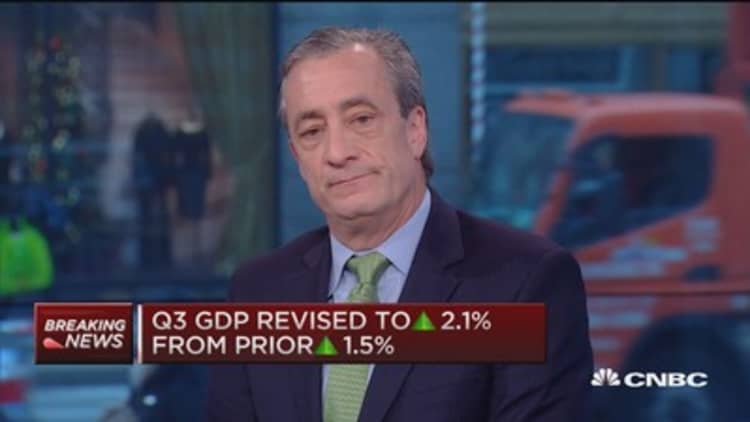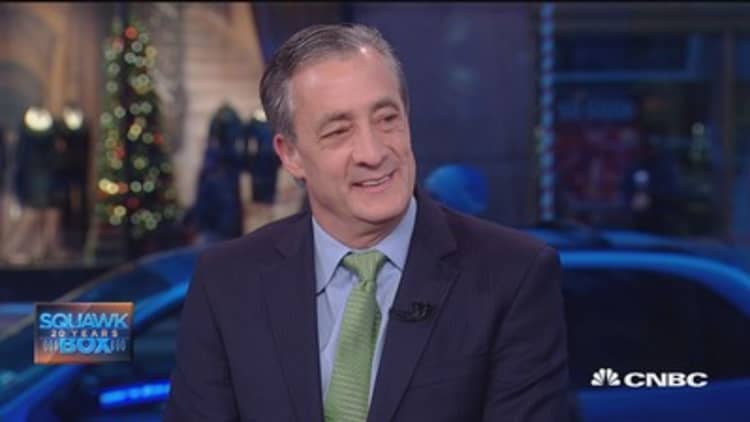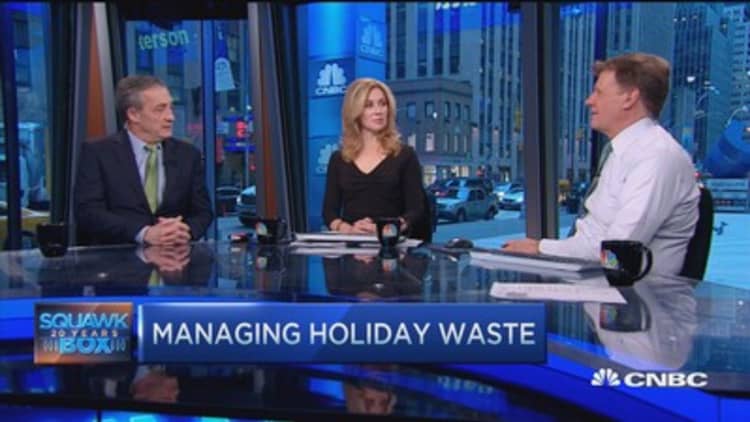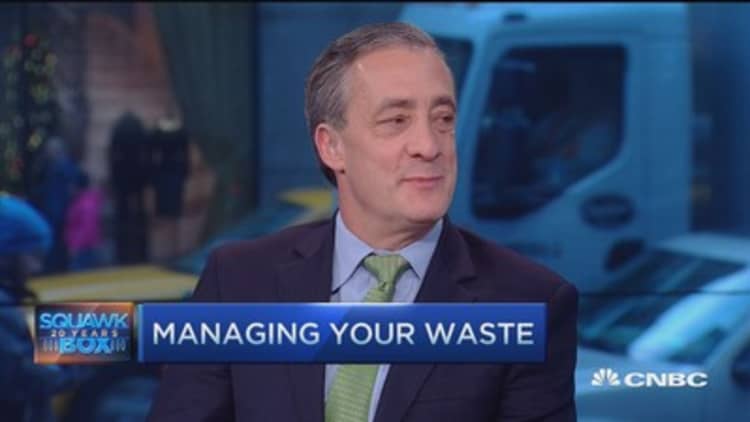



The ho-hum economic growth rate of around 2 percent and the prohibitive U.S. regulatory and tax environments are keeping corporate America on the sidelines, Waste Management CEO David Steiner said Tuesday.
"OK has become the new normal for CEOs in the United States," he told CNBC's "Squawk Box," with business leaders taking a glass half-empty approach. "As CEOs, we get paid to look into our crystal ball. When the crystal ball is smoky, you don't make decisions. When it clears, you make decisions."
Steiner's comments followed the government's release of its second reading on third-quarter gross domestic product, which Tuesday morning was revised higher in-line with expectations to a 2.1 percent annual growth rate from the initial 1.5 percent expansion.
Read More U.S. economy grew at a healthier clip in Q3
There's too much focus on how to mitigate negative factors, said Steiner. "How about instead of us saying, 'We didn't get so horribly hurt by regulation [or] we didn't get so horribly hurt by tax rates,' let's get helped by regulation, let's get helped by tax rates."
He blamed the Federal Reserve's policy of near-zero percent interest rates for holding back the economy. Central bankers are set to meet next month and possibly hike rates for the first time in nine years.
"American businesses, we say, 'Raise 25 basis points, [it] doesn't make a difference.' But if banks start lending money to small businesses, that makes a huge difference. In my mind, that's where the capital is getting constrained," Steiner said.
Despite the low rates, Waste Management won't be borrowing money in order to invest until there are more signs of optimism in the economy, he added. "Two percent growth is good, not great. We need to see something that makes us all optimistic. Let's get some 'go' signs instead of 'stop' signs."
There are issues, like lowering corporate taxes, that everyone in Washington agrees would help growth, he said. "But then they tie it in something else. And all of a sudden it gets dragged down. Let's quit playing that."
"That's the frustration of business with Washington is that there are things we all know that we should be doing, but they tie into things that none of us really care about," he added.


